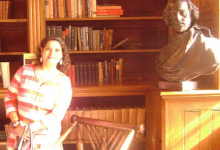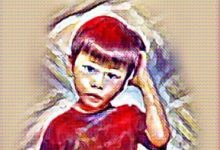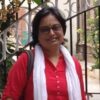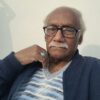Soumya shares the perils and pleasures on being a Bong in Delhi, in a tongue-in-cheek way. A Different Truths exclusive.
 I first arrived in Delhi many decades ago, a shy geek from Kolkata, overwhelmed by the glamorous capital city and clueless about its denizens and language. I had come on a vacation with friends and ended up joining an elite and snobbish institution of learning in the University.
I first arrived in Delhi many decades ago, a shy geek from Kolkata, overwhelmed by the glamorous capital city and clueless about its denizens and language. I had come on a vacation with friends and ended up joining an elite and snobbish institution of learning in the University.
At that time, my knowledge of Hindi was limited to adding ‘Hai’ after Bengali sentences…
At that time, my knowledge of Hindi was limited to adding ‘Hai’ after Bengali sentences like, ‘tumi kothai jata Hai’, ‘aami bhat khata Hai’ , much like the stereotype Bengali in Bollywood. Since then, I have learnt both the Rashtra Bhasha and Delhi’s local language, Punjabi after many trials and travails of which I have written earlier. But the college I went to had people from all over the country and communication was only in English except with the autowalas and mess staff; which need not help me learn much Hindi.
However, I was very surprised to find that the hostel I was allotted was called Mukherjee East. Initially, I thought that I would find a large number of people of my own surname out there and they had kindly allotted me a hostel specially designated for Mukherjees from East but was soon disabused from this notion. I discovered that it was actually named after one of the earlier Principals who had the same surname.
A major thoroughfare was called S P Mukherjee Marg and we knew this as the place where we went to procure contraband intoxicants.
We also went to see films in an area adjoining the University, which was called Mukherjee Nagar. This too did not contain any Mukherjees but was named after the Founding Father of the right-wing Hindu political party, which at that time nobody back home had even heard of. I later discovered many landmarks in Delhi are named after this venerated namesake. A major thoroughfare was called S P Mukherjee Marg and we knew this as the place where we went to procure contraband intoxicants.
Later on, I went to an Institute of higher learning whose Director and most of the faculty were Bengalis and included a native of my city, who later went on to become a Nobel Lauriat. The story went that there were so many Bongs in that Institute that even the gong went ‘Bong-Bong’.
Both in my college and the University, there was a large population of Bengali students, who had migrated to escape the pathetic educational environment back home in those troubled times.
Both in my college and the University, there was a large population of Bengali  students, who had migrated to escape the pathetic educational environment back home in those troubled times. Moreover, the faculty had even larger proportion of Bengalis as academics was an occupation that had a great charm for my brethren. Therefore, I was in an atmosphere where people with my surname were looked up to, even if stereotyped.
students, who had migrated to escape the pathetic educational environment back home in those troubled times. Moreover, the faculty had even larger proportion of Bengalis as academics was an occupation that had a great charm for my brethren. Therefore, I was in an atmosphere where people with my surname were looked up to, even if stereotyped.
As a case in point, when there was a student agitation going on, one of the leaders saw my name and immediately decided that as a man from Kolkata, I would have firsthand experience and I was given an immediate organisational responsibility. Then again, when a football team was chosen, I was immediately selected as I came from a soccer crazy city. Also, the literary, music, arts clubs would include me as a member presuming my interest on the basis of my ethnicity. I was also called for auditions for the amateur theatricals on the same grounds. But all that changed when I left the cocoon of the University.
It so happened that my first job was with the government-owned company in Delhi itself and I was the first Bengali they had seen.
I was also clubbed by the local Punjabi populace in the all-encompassing generic term of Madrassi.
On the first day itself, I was greeted with the joke of three thieves, Mukherjee, Banerjee and Chatterjee and how thieves should not have the honorific ji to their surname and would henceforth be called Mukher, Baner and Chatter. The first time I heard it the joke was funny. But I heard it four times in an hour itself. By the end of the first day, I was sick of it. This seemed to be the only reference to my surname that my colleagues could think of. I was also clubbed by the local Punjabi populace in the all-encompassing generic term of Madrassi. I was often offered Dosas for breakfast by well-meaning but ill-informed neighbours.
Over time, television, internet, and social media have removed this insularity by a great degree and today, I was pleasantly surprised to receive a number of greetings from my North Indian colleagues on the occasion of the Bengali New Year.
Photos from the Internet





 By
By
 By
By
 By
By
 By
By
Not to forget the famous Bengali Market of New Delhi ! Also, if you have no connection with Chittaranjan Park, you are not a Bengali.
A Good article once again.
Will Banerjee also qualify? No inferences to any other similar name in any office of governance in any state of India.
Gong going bong bong
 . Sweet reminiscences of yester years written with equal amounts of wit and humor.
. Sweet reminiscences of yester years written with equal amounts of wit and humor.
Saumya y ou are marvel brilliant genius of humour. Always giggle e to myself while reading your write ups